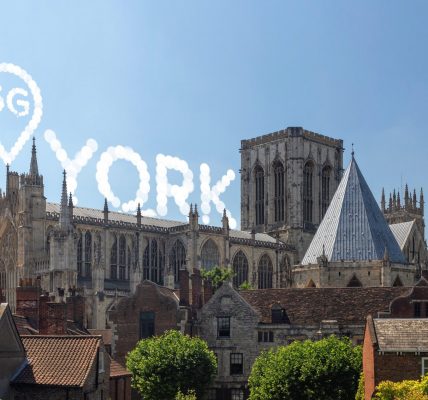Gary Numan: ‘It’s how we react to disappointment that shapes us’
Life in California evidently suits Gary Numan. Today the electronic music pioneer, 63, looks a picture of health and sounds cheerfully relaxed as he sits down for our transatlantic conversation via Zoom.
Since swapping rural Essex for the Sunshine State in 2012 Numan’s career has undergone an artistic renaissance and his last album, , reached No2 in the UK charts.
Four years later, he’s back with Intruder, a sequel of sorts to Savage’s apocalyptic visions of a world turned to desert as a result of global warming. Where its predecessor focused on mankind’s efforts to survive in an unforgiving environment, is framed from the planet’s perspective.
The singer tells of his despondency watching television reports on the effects of climate change. “You look at the news and you see the glaciers receding. There was a news story where ships were able to travel through the (Northwest) Passage in winter when it was normally frozen. It’s just one of 101 signs of the Earth changing, and I find that really sad and my kids are really bothered about it.
“It’s a part of my day to day thinking, but from that sort of perspective. I just find it really sad to see these things happening.”
Where took a sci-fi view of “what humans would become should the climate apocalypse happen, how it would haunt them and affect them, how while some would adapt to the brutality gladly others would not” and had the “environment as a backdrop”, Numan explains that is “the Earth speaking, which is a lot more immediate, a lot more present than the last one was”.
“If you could plug the Earth in and ask it how it felt, this is what it would say. It’s not all angry; there’s sadness and disillusionment and disappointment. It was trying to find a dozen or so songs that would articulate that range of emotions and subtle differences in between, and bring some other things into it. Religion gets pulled in there a little bit, our belief in the fanciful.”
In the song he attempts to “draw parallels between the mythology surrounding dragons, how they were persecuted and killed completely, and how in some respects that’s pretty much what we’re doing with the planet. We’re forcing it into a corner where it either fights back and wins and gets rid of us or we win by destroying it, and ultimately lose anyway.”
The album’s concept came from a poem that Echo, the youngest of his three daughters, wrote aged 11. “Essentially it’s the same idea,” he says. “The Earth is hurt, upset and angry about what people are doing to it. In the poem the Earth is speaking to the other planets and trying to explain to them why it doesn’t want to be here…It’s a child’s poem but for somebody who’s only 11 to have that level of understanding I thought was amazing, and the level of empathy in it for how the planet feels. I just took that idea and expanded it.”
As a thank you, Numan has included the poem in the album’s gatefold sleeve.
Having spent the past four and half years “obsessed” by news reports on Donald Trump’s avowedly pro-fossil fuels presidency, Numan seems relieved that the political tide is turning. “It was all what horrible thing has he done or said today,” he says, also noting that CNN’s viewing figures have reportedly slumped 46 per cent since January 7. “I reckon it’s because of people like me,” he says. “Trump was such a frightening, offensive force that you just couldn’t help going ‘What’s he done now?’ Every day there would be something nasty. The problem is I’ve stopped watching, so I’ve only got the vaguest idea what Biden is doing because I’ve just relaxed, it’s back to being proper government now. I shouldn’t be complacent about it, I should maintain a high level of interest, but I think we’ve all just taken, so to speak, a breath…But what few things I have heard would seem to be very positive.”
Nonetheless he feels the “real big changes that will make a difference as far as the planet is concerned” will come from the next generation. “The teenagers of today in 10 or 15 years or so they’re going to be in a position of power, hopefully, some of them, and I think that’s where the real change is going to come. What we really need at the moment is to keep this conversation as loud as possible, keep the pressure on to encourage the governments that we have at the moment to do enough to just slow it down, to keep us alive until the young people come along and actually make the significant changes that we need.”
Numan admits the Covid pandemic reinforced a sense of existential dread as he was completing this record. “The strange thing about , in this idea about the Earth fighting back, the idea of a virus was already there, which was a bit freaky,” he says. “When the pandemic happened in a tragic way it fed in to what the album was already saying. I did write a song specifically about the virus, called , which is slightly sarcastic, it talks about ‘this gift will take your breath away’, but as an idea for what was going to be incorporated in the album, it was already in there.
“Some time ago I heard a documentary that was talking about viruses being one of nature’s weapons to sort out certain infestations. Essentially humans are an infestation on the planet, you get rid of us and the planet flourishes – that was obvious within the first few months of the pandemic, how the air was suddenly cleaner. Because the pandemic came along it did reinforce this idea that if the Earth was to fight back a virus is probably the way it would do it. As an idea it was weirdly timed.
“I also read that when it comes, it will be the first of many and they would become more deadly and more refined and more capable of killing us off. That’s pretty terrifying. is the first of two albums and I’d been thinking of what to do for the second one. It can’t be the same as this one, I’ve already explored it as much as my limited talents can do, but maybe with the next one we start to drift into science fiction or science possibility, and it’s much more of a battle, there are more viruses and we are at war with the planet. It will still have that climate change theme, but that might be a good angle for the next one.”
Although delighted that restored him to the upper echelons of the charts, some 35 years after the likes of and , Numan also found its success made writing a follow-up more difficult. He says it wasn’t easily overcome. “This has certainly been true for a while, maybe it wasn’t in the beginning, but every album is more difficult than the one before. Every album I’ve done since 1992 has done a bit better than the one before, so that brings a pressure to it, and the more my reputation has improved over the years – it was pretty bad for some time, but in the early 90s it started to improve, now I’m seen as this pioneer, which is all lovely and I’m really proud of it – but there’s a huge amount of pressure comes to justify that, so it is a worry.
“Every album you make is a pretty tortuous experience. I would say you probably spend three or four weeks in a studio working on something and progress is painful, inch by inch, not particularly exciting. You do get it done and I think you do more than you realise but it’s slow and painful and you feel like your confidence is on a knife edge or crumbling all the time, and then one day everything comes together and it’s just euphoric, and that one day entirely makes up for the four weeks you’ve had before. You just hope there’s going to be enough of those days in the year or two you’re going to spend on it to give you a decent album at the end of it.
“Intruder was just the same. When it’s done and you’ve mastered it, so there is no way that you can tweak it any more, the month or two between that and when it comes out that’s a nightmare, you can’t listen to it because you know that all you’re going to hear are the things that are wrong with it. You go through all the self-doubt, and you have to go through all the artwork so you look at all the lyrics, you start to listen to it again and then hopefully you begin to think ‘it’s all right’, then a month later you go ‘it’s pretty good, actually’ and you come back to some degree of confidence about it.
“But it’s a hard thing, it’s tortuous, and the better each one does, the worse that is because I’ve lost that arrogant confidence of youth. When I first started I just assumed that I’d do something worthwhile. That didn’t last very long, actually, and it’s not been like that for decades now. I agonise over them, but I think that’s a good thing.
“If you think you’re God’s gift to music because when you go in a studio the first thing you do you’ll think ‘that’s amazing – I did it’, and you’re going to be putting out stuff too easily without really exploring could that be any better. I’m almost the other end of it, I agonise so much I almost never make a decision. It takes me a while and I struggle.”
Last autumn Numan published his memoir to considerable praise. He says he learnt “a couple of things” from retracing his life. “I remembered how difficult it had been, how many things went wrong, how many crushing disappointments there were, not just in my career but in life – babies and all sorts of things. And then I realised by writing and re-living all of that, I actually found it surprisingly difficult. I didn’t think I would.
“I’ve just had to do it all again,” he says. “In the last few months I’ve been recording the audio book edition and yesterday I read the chapters that were talking about my mum dying and losing the baby. My wife says it’s the same with childbirth, you forget how much it hurt, and I think that was true of writing the book. I’d forgotten just how horrible so much of the stuff was, and how difficult the journey was to try to get back to relevance from a career point of view. The thing that was noticeable to me was my resilience, perseverance and determination just to keep going, to overcome these things and not be crushed by it and turn into an alcoholic or a drug addict, or become bitter and twisted and blame everybody else. I never did any of that, I just kept my head down, kept working, kept thinking and just tried to make things better.
“I came out of that feeling pretty good about myself, actually. I’m the first one to put my hand up and admit the many mistakes I did, I think I wrote them all down, they’re all in there, it’s very much warts and all. I do think at the end of it I did all right, actually. I’ve got no axe to grind about the way the press were when I started, I understand that they just didn’t like the stuff, that’s fair enough. I feel like I’ve come through it all pretty well balanced and I’m making pretty good music now. I’ve not blanded out, gone all middle of the road like a lot of people do when you get older and I’m still able to have a nice family, live a relatively normal life, my kids are largely unaffected by this because I’m pretty down to earth and grounded.
“It was a really interesting thing to write, and it did bring up a load of old pain, memories that I’d buried, but I’m really glad I did it. It doesn’t hurt to be reminded once in a while of your journey. Those setbacks I think that they do more to shape the man that you become than any amount of good things that happen. More than anything, I think it’s how we react to disappointment that shapes us, it identifies whether you have any kind of moral backbone. It’s how you handle disappointments that does that. I’m happy with the way it’s turned out.”
Numan has long inspired a devoted following of fans. He says he still gets messages from the early ‘Numanoids’ as well as more recent adherents, answering their questions via a monthly Q&A on his Patreon account. However, he says: “As far as Twitter, Instagram, Facebook and all that sort of thing go, I don’t read anything, I never look at comments. I don’t need to be praised up, I don’t need people saying how great I am, I don’t care about that. I’ve been around too long to give a s*** about that sort of thing, I don’t need to risk looking at the bad stuff so that I can see the good stuff.
“I just avoid all of it, so I have no idea of what people are saying about me, I’m genuinely happy in that ignorance.”
After recently watched a documentary about the social media hounding of Caroline Flack, he says he talked to his daughters about it. “I want them to watch this documentary, actually, because this need for validation, this need to read positive comments is a weakness and it’s a weakness that could kill you,” he says. “It will certainly make you incredibly miserable. We seem to have a world now where it’s almost essential, to such a large element, and I’m really frightened my kids will grow into that, because they’re all very Instagram-y, they all want to be seen as writers, they’re going in that direction, so they’re walking straight into that particular minefield. I know from my own experience that the only way to not be damaged by that is to ignore it completely.
“I don’t have any problem with Twitter or what people say on it because I never read it. I make my posts and I go out or I go to work. I don’t need to see one single comment about anything that I’ve done, it’s a totally one-way thing. The only things I read are the questions that come in to my Patreon site, if I see ‘Q&A’ then I read it. I do my own thing and you can follow it or not follow it. It keeps me safe, that’s the thing, it stops all that s*** going in.
“I’m lucky, I’ve got Asperger’s so I’m able to compartmentalise a lot of that nonsense which I didn’t do at the beginning but now I think I shouldn’t have to. Why? You don’t need it.
“The internet has given everybody a voice, and what’s so shocking about is how people don’t know what to do with that opportunity other than be vicious. It’s as if there’s a thin veneer of decency across the top of humanity and that bit of anonymity just scrapes away that veneer and all this nasty bile is there in almost everybody and it just pours out, so that’s why I don’t read it.”
Today Numan is regarded as something of a national treasure. He says he is proud that some of his songs have outlasted the vagaries of fashion. “ is still used in advertising campaigns every day, I’m pretty proud of that,” he says, “but my main interest really isn’t what I’ve done before, it’s what I’m doing next. I’m much more excited about Intruder, I’ll be just as excited about the next one, if not more. I’m much more forward-thinking. So while I’m aware of the legacy, of what it means and what it’s done, and I am proud of that, I’m not particularly excited by it. It’s just a nice thing to know that it’s there, I nice little cushion to lean back on, so to speak, but it’s not driving force, it’s not a thing I go out and talk about. I would much rather sit here and talk about Intruder or what I might be planning next than going back and talking about and and things like that.
“It’s a lovely framework to have a career built upon, but it’s not what gets me up in the morning, that’s for sure.”
is out on May 21. garynuman.com










